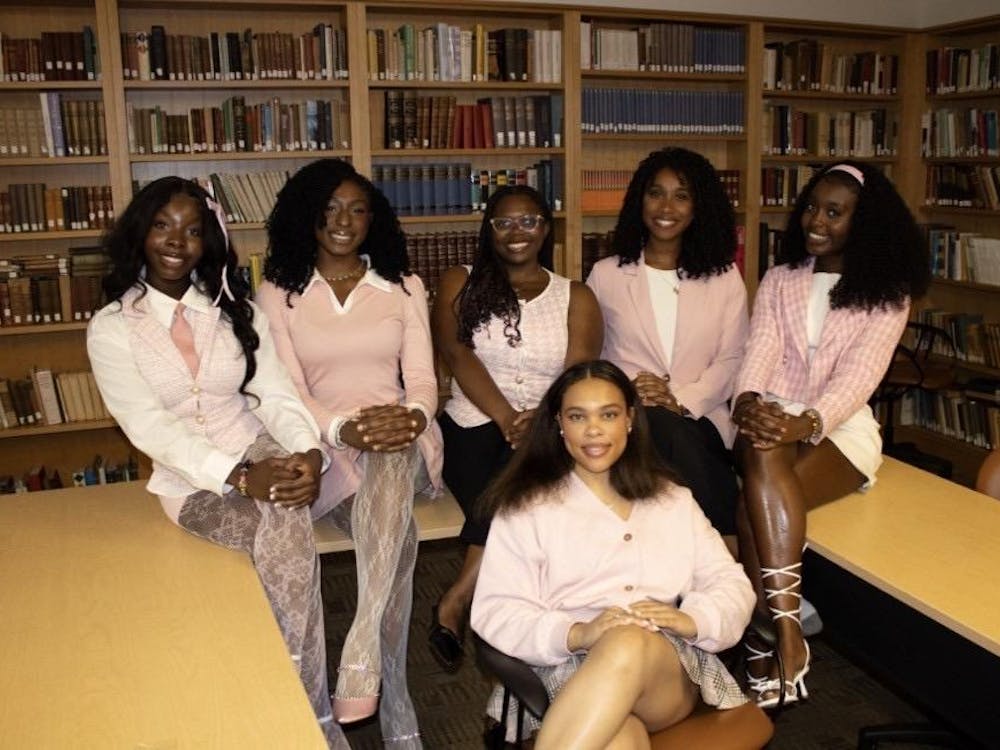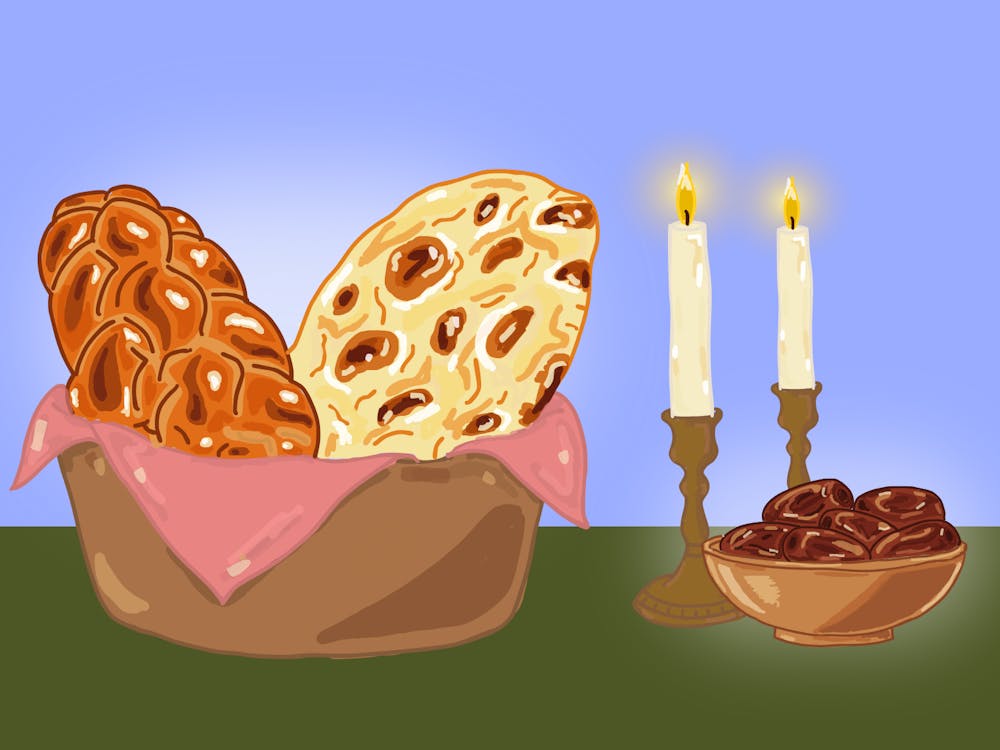"Where'd you park for this thing?" a woman called in an easy Southern drawl from the window of her pickup truck outside the University Surplus Depot.
Every six weeks, the depot auctions off an accumulation of items from various University departments. Cars line the street in both directions, proof of a little-known University event that draws a lot of die-hard followers.
Inside the depot at last Wednesday's auction, everything from medical examining tables to a lobster tank filled a warehouse from wall to wall. Item #326 was a plastic ice sculpture mold in the shape of a mermaid. Item #256 was a box containing a random assortment of used gardening gloves, metal cans and other bits and pieces that would seem more fitting in a trash can than at an auction.
Farther down the row, file cabinets, to be sold in batches of three, still had labels stuck to them from their previous owners. The auction contained such a variety of items that some cabinets used for display purposes only were clearly labeled, "This cabinet not for sale," to eliminate any confusion.
"Make sure you know where your number is so you can get to it real quickly," the auctioneer reminded everyone right before 9 a.m., a premonition of an auction pace that would sell 800 items in the next eight hours.
Bobby Carefoot, the surplus property manager, explained that all of the items, no matter how odd, come from the University.
"The ice sculptures came down from the Sponsor's Hall," Carefoot said. "The lobster tank is from the biology department."
Carefoot, who was described by a fellow auction worker as "young for having white hair," explained that while some auction buyers are private citizens, many are dealers who buy for resale.
"We see most of the same people just about every time," he said.
Carefoot also said that University departments get a chance to claim the items before the auction takes place. Unlike at similar depots at other schools, however, individual University employees must come to the auction just like anyone else.
Several items, such as cabinets, are sold in batches because there would be over 1,300 items if everything was numbered individually, overshooting the typical selection of 800 objects to bid for.
"You have to get the items together to get your sale down, because when you've got 700 to 800 items the sale already takes all day," Carefoot said with the experience of someone who has been in the auction business for 20 years.
Unsold items are put back into the next auction, as are items that are bid on but never picked up. All proceeds from the auction go back to the University departments.
Meanwhile, the auction got off to a good start, with item #2, a laptop, going for $100, while item #3, another laptop, sold for $300.
Helen Hewley, a regular at University surplus auctions, sat up very straight on an antique couch.
"I think the auction is very nice," Hewley said. "It helps a lot of people who really need things."
Wearing an eager expression, Hewley said she comes looking for antiques, and this time she had her eye on the couch she was resting on with a companion. Upholstered in spotless white, the sofa looks like something one might see in a museum.
Hewley remained perched in the same spot on the couch for the rest of the auction, seemingly warning anyone else from becoming too attached to it. Finally, she beat out one other bidder to buy the couch for $325 and proudly had it carted to a dusty minivan waiting outside.
Karen Waters, browsing in the section of unsold items, came to the auction for an entirely different purpose.
Waters, who graduated from the Education School last May, was in search of bargain furniture for her new office.
"This is my first auction," she said. "I've read a lot about them, so I came to see what I could see."
Waters got a lamp early in the auction, but also was looking for office chairs and maybe even a computer.
"I scored a lamp for $5, which was kind of fun. Then I said, 'Now what do I do?'" Waters said. "I'm tempted to just bid on stuff and drive the price up."
Andrea Earman, another self-proclaimed regular, comes with her son and husband each time. Her husband looks for used equipment for his electrical business, but today her son has the lucky find.
"His boss's printer wasn't working and they had the same printer," Earman said. "He called his boss, gave him a price, and my son came up with one."
Equally important as the buyers is the auctioneer, who sets the pace and plays up certain items as "looking old" or as a "great find." In fact, the University surplus auction lasts so long that several auctioneers take turns relieving each other.
Lawrence Bennett is a private auctioneer who is part of the team contracted by the state to run the University auction.
Bennett has been an auctioneer for the last 25 or 30 years - he can't remember exactly which.
"I just got interested in it, and then I went to school," Bennett said.
Bennett actually taught in an auctioneer school for three years before he studied there.
"I'd been an auctioneer for 10 years before I even went," he said.
Among the most interesting things Bennett said he has auctioned off in his career are racehorses, airplanes and bachelors at charity auctions. At such events, "We'll sell something like a puppy for $900," he said.
"Auction is a big business. It was a big business before e-Bay and everybody. We sell millions of dollars of real estate every year, and we're just one small company," Bennett said of his private auctioneer company.
Bennett's own auction company and another similar company work together to do about 10 auctions a year for the University.
He said selling by auction protects the state from being accused of selling items at a low price to favored buyers. With the auction, the bidding sets the price.
"There are no closed deals," he said. "Anyone can buy anything that anyone else buys."
And Bennett believes auctions offer additional advantages besides logistical ones.
"The auction method is the most efficient method of marketing anything," Bennett said. "The stock market is truly an auction every day. You couldn't handle the paperwork any other way."
Looking at a driving-simulation arcade game sitting against one wall, Bennett said, "You have to come in here and look around and think that everything came from the hospital or wherever. I had never realized that they had such a wide variety of items. And so much of it."
Unfortunately, this incredible variety means no guarantees that any particular item will be for sale, or that it will sell cheaply. Three metal desks sold together for $2 only 15 minutes before two snow-shovels sold for $14.
As Earman said about her husband, "He's been known to come and find a little of something, or to find nothing at all"






